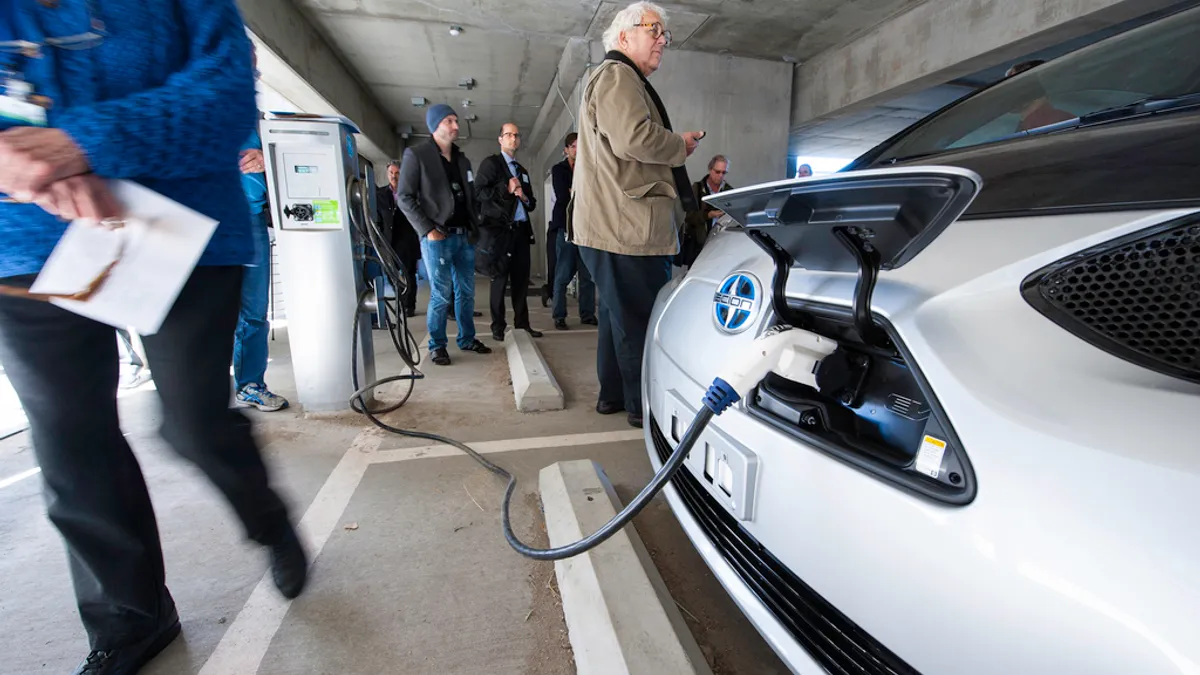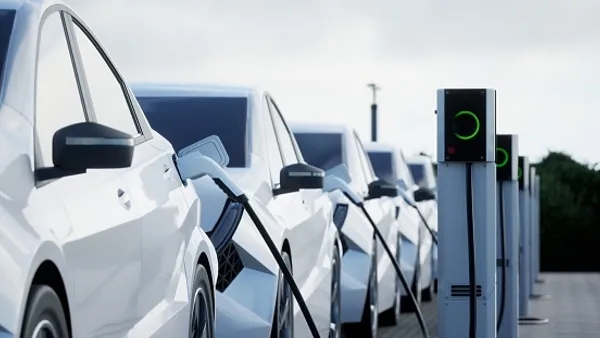Dive Brief:
- Consumers Energy has withdrawn a proposal filed within its rate case at the Public Service Commission to install 800 electric vehicle charging ports in its Michigan service territory after the plan raised questions about how to pay for it.
- The utility's plan included 60 fast charging DC stations along major highways in the Lower Peninsula and 750, 240-volt AC stations in metropolitan areas. Energy from the AC stations would have been paid for by the station host and business owner, with installation costs going into the utility ratebase.
- There were concerns that EV charging rebates for residential customers were capped low, and that the program could raise costs for private companies and keep them out of the market.
Dive Insight:
Consumers' EV station rollout would have been the first serious push by a Michigan utility to drive electric vehicle adoption, according to Midwest Energy News. But despite noble goals, the utility is hitting pause amidst concern more scrutiny of funding mechanisms is required.
"Undoubtedly, the Company’s PEV Infrastructure program is a well-intentioned," wrote Administrative Law Judge Dennis Mack in a December proposed decision. But he added that the the program raises "significant policy questions that must be addressed...The program could actually inhibit the growth of a charging station network by discouraging other private actors, such as ChargePoint, from also entering the market because their costs will necessarily be higher."
Consumers, in January, praised the ALJ's decision—though adding it did not agree with all of its conclusions.
"Consumers Energy has determined to withdraw its proposed PEV Charging Program proposal as presented in this proceeding," the utility wrote. It would be a "willing participant" in a Michigan Electric Vehicle Collaborative, but said it "strenuously objects" to a proposal by the PSC Staff to adopt its proposal to modify and defer cost recovery of the residential customer rebates for PEV charging units.
"Staff’s preferred approach to cost recovery would have the Company investing in rebates and the infrastructure necessary to promote and adopt increased PEV charging, with no cost recovery in this case," Consumers wrote.
Consumers’ EV plan had some support, including from environmental groups and General Motors, but others—such as charging equipment manufacturer ChargePoint—protested. The company said in testimony the plan "could slow rather than accelerate adoption of EVs in the near and long term in Michigan.”














